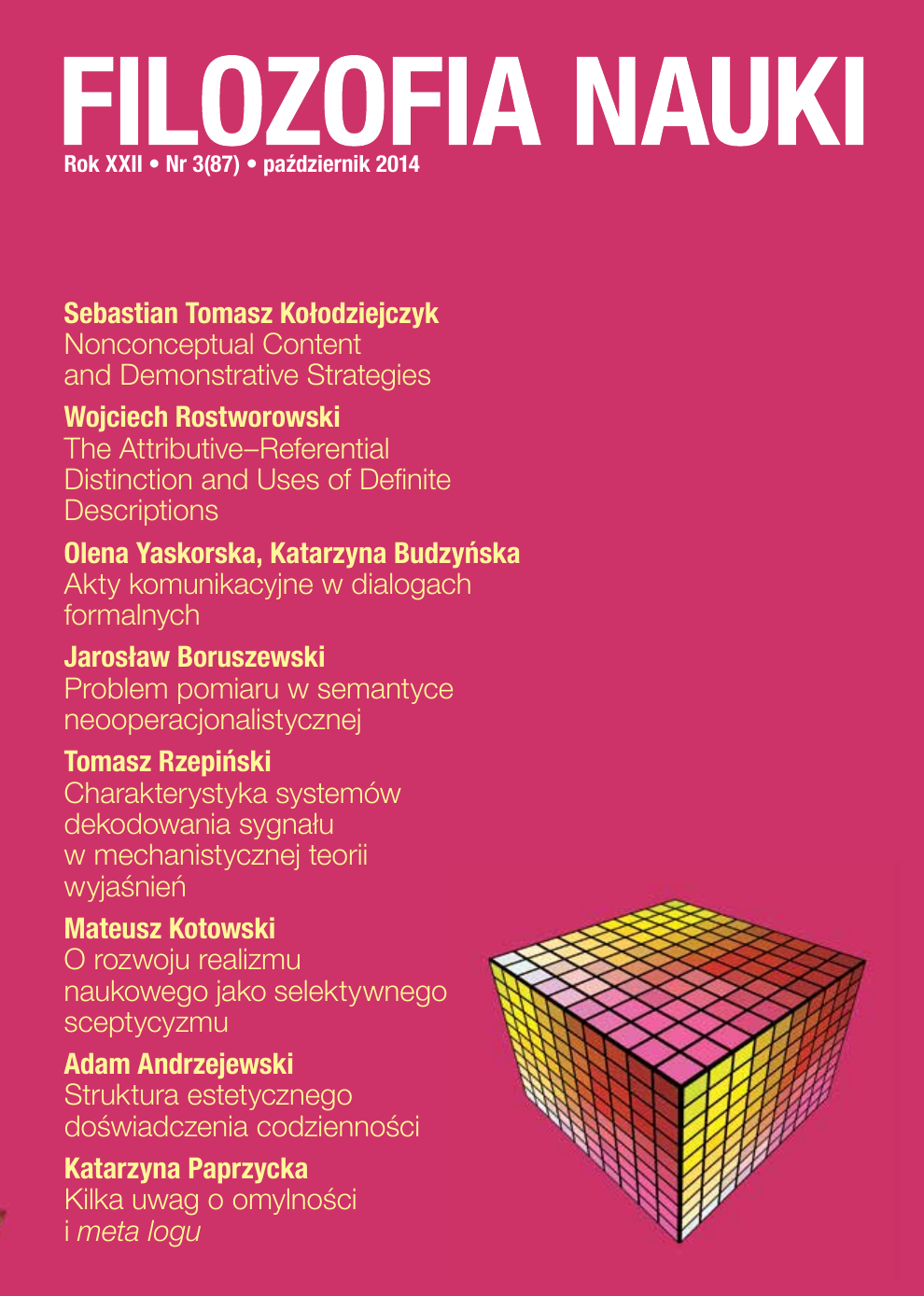Akty komunikacyjne w dialogach formalnych
Słowa kluczowe:
dialogical logic, formal dialogues, speech acts, dialogue systemsAbstrakt
The aim of this paper is to propose the description of formal dialogues in terms of speech act theory similarly to the description typical for contemporary dialogue systems of natural communication (Prakken 2006). The main motivation is the problem with Lorenzen’s dialogical logic (Lorenz, Lorenzen 1978) as pointed out in (Hodges 2009): “he [Lorenzen] spoke of moves as »attacks«, even when […] they look more like help than hostility. To repair Lorenzen’s omission, one certainly needs to distinguish between different stances that a person might take in an argument: stating, assuming, conceding, querying, attacking, committing oneself”. The solution proposed in the paper is to map the dialogical logic onto the general language for natural dialogue systems, which uses speech acts as a basic unit of communication (Prakken 2006).
To this end, dialogical logic has been reconstructed by specifying three types of rules which describe the usage of speech acts during a dialogue game. The rules of the first type, called locution rules, determine speech acts players are allowed to perform during a dialogue game (e.g. an attack on the conjunction can be made by performing a speech act question which has a conjunct as its propositional content); the second set of rules, called protocol, describes the interaction of the speech acts during the dialogue (e.g. the player defends the conjunction ψ by claiming the truth of its conjunct ? which was questioned during the attack; i.e. after question ? the player can perform claim ?); the rules of the third type, called effect rules, specify effects of performing speech acts during the dialogue (e.g. after the player performs claim ?, the formula ? is added to her commitment store, i.e. to the set of propositions that she publicly declared as her beliefs).
The proposed description of dialogical logic in the general language of dialogue systems can be used for studying and systematising structures of sound informal communication as suggested by Hodges. In particular, it allows to embed Lorenzen’s system in a protocol of dialogue systems designed for natural communication and, as a result, to detect formal fallacies committed during a natural dialogue. In other words, during a dialogue the players can decide to verify the validity of an inference scheme they used in argumentation by shifting from the natural dialogue to a formal (Lorenzen-style) dialogue both expressed in the same language. After finishing the formal dialogue, the players return to the natural one and accept or reject the inference scheme depending on who won the formal game: the proponent (then they accept that the scheme is valid in a given logic) or the opponent (then they reject the scheme as incorrect).















 Filozofia Nauki | ISSN 1230-6894 | e-ISSN 2657-5868
Filozofia Nauki | ISSN 1230-6894 | e-ISSN 2657-5868